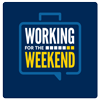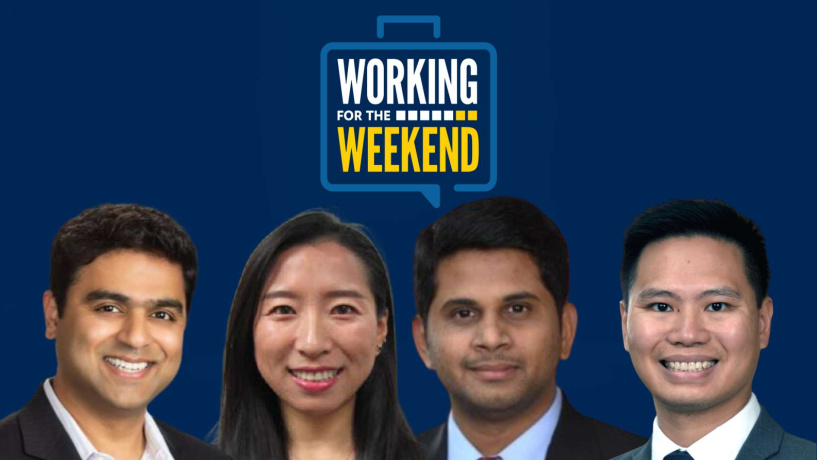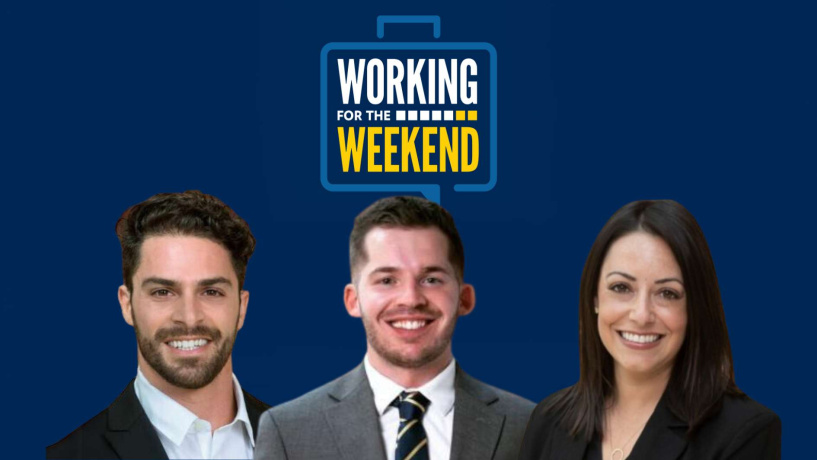Episode 206 – How Equitable is the World of Sports?
On this episode of the Business and Society podcast, Chris Rider, Thomas C. Kinnear Professor of Entrepreneurial Studies, and Stefan Szymanski, professor of sport management, discuss their research and thoughts on recent trends in the sports industry. Rider and Szymanski study sports from a diversity, equity, and inclusion perspective. In the episode, they share insights on corporate responsibility, equitable practices, changing demographics, and economic impact.
In addition to topics like the economic impact of the NFL draft or the changing connection between fame and athletics, the major topic of the episode is the increased emphasis on social responsibility and diversity across professional and college sports. Rider and Szymanski give their perspectives on the challenges that professional and college sports organizations face.
Rider shared that one consideration for increasing diversity and equity is implementing inclusive hiring practices and DEI strategies at entry and mid-level career stages. His research shows that this will create more opportunities for coaches of color and women to gain the experience they need in assistant and coordinator positions – opening the door to more diverse team leadership.
“Some of the best innovations in terms of DEI policies come from the world of sports. Arguably, the world's most prominent DEI initiative is the Rooney Rule, which is a diverse candidate slate policy that was started in the NFL in 2003. The challenge in saying if the Rooney Rule or any other sort of gap-closing policy is effective is that they aren't typically implemented in the way that a good social scientist would want to evaluate their effectiveness,” shared Rider. “The research that I have done suggests that if we want to be effective, many of the policies or strategies that we see in place would likely be more effective if they were implemented at lower levels. That is, the early career stages.”
Additionally, Rider suggests that these uniform hiring practices should be expanded to positions across NFL organizations, including administrative and facility staff. Rider indicates that adopting a more scientific approach to implementing diversity policies, such as the Rooney Rule, could create a better environment to test DEI policy effectiveness. Using standard AB testing methods, Rider believes the NFL could easily evaluate these policies to improve equitable representation.
Szymanski points out that the NFL is one of many sports organizations struggling to adopt effective DEI strategies. Szymanski studies the English soccer industry, particularly the Premier League, and finds similar challenges of inequity in their hiring and promotion practices.
“We need to figure out exactly where the bottlenecks are in the process. The current research I'm working on is looking at a pool of players or former players and seeing three steps: at what stage do they end up in the management process, how are they promoted within coaching, and when they are fired – and coaches are always fired – at what stage are they fired and why are they fired?” shared Szymanski. “We need to gather more and more information about this in order to understand better and also, frankly, to persuade more people that there is a real problem here.”
From that framework, Szymanski’s research challenges the notion that lack of ability is to blame for the firing of coaches. For example, he found that Black coaches are more likely to be dismissed than their white counterparts, even when performance is comparable. This suggests that race may influence the decision to fire coaches beyond their professional competency.
In the conversation, Rider points out that professional sports leagues are not the only sports organizations dealing with race or gender-based disparities. College athletics has seen the most change over the last few years, particularly the implementation of NIL deals for NCAA athletes.
“Right now, the debate is largely about what is fair or right in terms of how much and how, when, and by whom athletes should be paid. Once we get past that, it becomes the kind of conversation that I think you see in other compensation arenas, which is not necessarily about whether or not they should be paid but rather the disparities in pay.”
Rider oversaw the research of Lauren MacKeigan, BBA ’23, who wrote her senior thesis on the DEI implications of NIL deals in the context of gender and racialized identity. Her research, which surveyed over 300+ student-athletes, indicated a gap in the expectations for compensation between athletes of color and white athletes, potentially leading to disparities in NIL deals. Additionally, women athletes tend to expect less than men, which could result in further inequality.
“I think there are reasonable arguments to be made that people should be paid the same for the same work… Some people think that we should be paid based on what we produce, and certainly, the revenues for different sports are different. You can make arguments that compensation should be proportional to the revenues produced, and so if you subscribe to ‘equal pay for equal work’ or ‘compensation proportional to revenue generated,’ [models] you arrive at different conclusions about what equitable compensation is in NIL.”
Have thoughts about topics we should cover?
Send us an email at baspodcast@umich.edu.
Want to hear more from Ross students, faculty, and alumni?
Check out more of our podcasts.
 Business Beyond Usual: Full-time MBA students at Michigan Ross tackle burning issues on campus and the world beyond. In every episode, the student hosts discuss a topic of importance for current and prospective students through interviews with current students, alumni, faculty, and administrators.
Business Beyond Usual: Full-time MBA students at Michigan Ross tackle burning issues on campus and the world beyond. In every episode, the student hosts discuss a topic of importance for current and prospective students through interviews with current students, alumni, faculty, and administrators.
 Working for the Weekend: A deep dive into the daily life of part-time MBAs at Michigan Ross. Weekend and online MBA students discuss their experiences and advice for prospective and current students.
Working for the Weekend: A deep dive into the daily life of part-time MBAs at Michigan Ross. Weekend and online MBA students discuss their experiences and advice for prospective and current students.
 Down to Business: Join Dean Sharon Matusik as she interviews Michigan Ross alums in the C-Suite to learn how Ross set them on a path to organizational leadership.
Down to Business: Join Dean Sharon Matusik as she interviews Michigan Ross alums in the C-Suite to learn how Ross set them on a path to organizational leadership.
About the participants
Host: Jeff Karoub
Producers: JT Godfrey and Jeff Karoub
Guests: Chris Rider and Stefan Szymanski
Audio Engineer: Jonah Brockman







